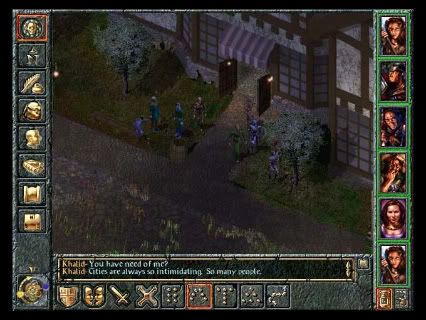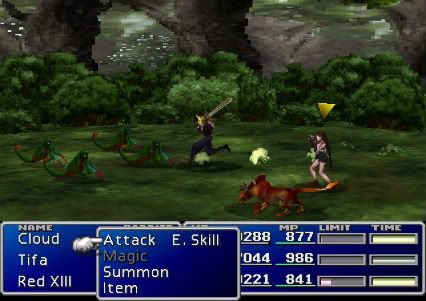I have grown bored with conventional cinema. It isn’t because it’s the same story again and again. It isn’t because I think the actors’ personal lives seem to be bigger than their line of work. It isn’t anything like that. It’s because after a century of work, the industry seems to have done all it can do.
Movies are unarguably one of the biggest influences on our culture ever. We spew out catchphrases and emulate the big screen heroes whether we know it or not.
Film grew from other mediums, such as theatre. It brought plays to the masses at a relatively cheap price, and held our attention for what feels like forever. Excluding purists (of which there are millions), cinema rendered a more traditional medium all but obsolete. The question is, when might video games extend beyond what they are today, and make film all but obscure and cult?
Video games have fought for the past 30 years to be considered more than just a simple “child’s play-thing.” To many, they are still all bleeps and bloops, but the industry is trying valiantly to maintain a balance of both classic arcade and independent titles designed to relive nostalgia, and fully-produced ‘AAA’ releases by developers who can afford to sling money around as if it were as plentiful as trans-fats and corn syrup.
This current run of consoles is almost like a renaissance of sorts. The industry has been able to build on the footprints from previous generations’ “mature” titles which seemed to have an identity crisis. Realizing that kids who grew up in the 1980s were now in their 20s, developers attempted to attract the market with games that were brutal, violent, and all in all, unrefined. The idea was that you could differentiate gaming from being a toy by marketing themes of excursiveness.
It can be argued; but speaking frankly, it didn’t work. The media convinced the mainstream that games were now ultra-violent kids toys. Despite this, the industry began to thrive to the point where it was now generating more profit than its nearest competitor, the film industry. Give credit to shock and awe tactics.
The game industry began to attract the eyes of many respected members of other mediums in a positive light. Suddenly, it seemed that everyone and their mother was somehow involved with every second game. Mark Ecko, Steven Spielberg, and John Woo were some of the early adopters, and that isn’t even taking into account the countless actors clambering to add voices and motion capturing to notable releases.
Overnight, the games industry decided it wanted a more cinematic approach to both gameplay and storytelling. Film has moved people for decades, and the proof is in the pudding: it works.
With these newest additions, games began to follow the same formula they have been using for 20 plus years. Namely, handing the player a mostly linear narrative where the user played the action sequences, but watched the story.
Games had tried to change this, and they will be revered as classics collected in museums. In particular, the Baulder’s Gate franchise attempted to capitalize on the Dungeons And Dragons formula- a game often considered to be role playing in its purest form limited only by your imagination and schedule. The results were this: foundations for extreme story alteration by the user became available.
More recently, Baulder’s Gate developer BioWare (owned by Electronic Arts), was able to craft what Critical Gamer has called the “Next generation of choose your own adventure.” Formulae that were developed 15 years ago had been nearly perfected in 2010. What were once limited to minor character interactions and ethical choices were expanded to a degree that made you feel as if you actually were the character you had crafted.
Sandbox games have been actualized for a full decade or more now. You’ve had the ability to travel anywhere in the game world you’ve wanted before. But now you have the chance to manipulate not just key story moments, but minor ones as well. For example, Mass Effect 2 gave users the chance to carry over saved data from the game’s predecessor and have it affect your newest playthrough in ME2. One specific point was dealing with an all-too-nosey journalist in the original, who you could interact with in the sequel. Personally, I punched her in the face. It felt good (though it is impossible to condone violence to, erhm, chicks. Or reporters, for that matter).

By the time Mass Effect 2 was released, you were no longer just playing the action sequences, you were deeply affecting its narrative aspects as well.
There are always limitations, however. Stories are not only hard to write, but they take time. Lots of it. Mass Effect 2 was penned by 2 writers, Drew Karpyshyn and Mac Walters, and it is said that they worked on it, well, longer than any one mortal can imagine. Take into account storytelling, and then multiply it by programming and technical development processes. Suddenly, something that took 2 years to write took another 2 years to digitize.
There we have it. I simply prefer games to cinema for the interactivity. For ages I was able to hold both on the same plateau and divide my time evenly between the two, championing them both. Times have changed, and it is hard to see movies as something that can compete with the recent releases of today, or the titles of tomorrow. Cinema seems to exhaust every idea available to them. They have milked celebrities to the brink, and have to rely on gimmicks entirely to bring back audiences once lost who might not know any better. Sure, movies are using 3D technologies right now, but honestly, it feels more like an last ditch effort, rather than something evolutionary.
Games will utilize this gadgetry because it feels like a natural progression, not because they need it to survive. 3D does not immerse you in film, it merely makes you revel in it. In games, however, it allows one more depth of field. Games will be able to move in any potential angle, and not just in a narrative sense.
The same idea goes to many celebrity voiceovers, wherein if you know it’s Will Smith voicing a small fish, you’re going to focus on the voice of Mr. Smith, not the voice of the character he is playing.
To clarify, it would be hard to see cinema falling to the wayside. After all, print media took a steep nose dive in the last decade as well, but it eventually fought back and took back a share of what it had lost years prior. The comics industry is doing the best it has since the early 90′s, and remarkably, much of their current success is because of another medium this particular article is trying to market as obsolete.
The current generation of console hardware brought us adult-themed game releases and has advanced itself enough with titles like Heavy Rain from developer Quantic Dream, and the previously referenced BioWare releases, to establish itself as a completely engrossing medium-so much so, in fact, that critics debate whether or not “game” is really an appropriate genre term any more. Many journalists have taken to calling the art “interactive media,” though the reasons for doing this seems slightly suspect. Arguably, the idea sounds like an immature attempt to distinguish your passion to the “big kids.”
Cinema has pushed itself to the brink, all mediums eventually do. There comes a point where there might not be much left to do, though successful films such as Duncan Jones’ Moon makes a run for the money.
In 20-odd years, when publishers can give developers $600,000,000 to make a piece of interactive media, then maybe- just maybe- we can revel in an ever expanding world where your warrior elf gets sidetracked by what her pants want her to do and she manages to get impregnated by a lowly male servant. You then bypass saving the world and start a life as a shoe cobbler in an outer rim planet. Keep in mind, you were supposed to save the day by killing a giant space hooker.
Until then, there are placed limitations from technology, money, man power or whatever else. Though the fact that we live in a world where we can destroy almost anything in any sense of the word and have that choice cause dramatic effects in that universe is a good, comfortable starting point.























No reference to Uncharted 2 Among thieves? This was way more of a cinamatic experience than Mass Effect 2. More games need to be like U2. I do agree with some things though, HOLLYWOOD is running out of ideas. But there are still sources untapped.
Gaming will eventually make Movies nearly obsolete when more and more people are exposed to interactive entertainment of passive entertainment. I would wager 1 more generation. 1 more generation should see the tech to integrate the movie experience into an interactive movie experience, video games… James cameron was the first to make the shift as far as I know.
typo above… “over passive entertainment” is what I meant to type.
1st Learn to play the games and know their names mother****er kid the game’s name is:
Baldur’s Gate, NOT “Baulders”<— NO , this mean you are a kid and have no idea what this game is about or what are you talking about.
And the inferior cinema is the crap Japanese PS3
Hey ‘alpha’, I think you need some oestrogen shots man. YOU’RE old enough to know what that is right?
I don’t see cinema as inferior in any way. It’s just different. I like not having to use a controller to enjoy entertainment some time. Let’s me hold my girl’s hand instead.
Went to see Kick Ass with her last week. Now that’s good cinema!
The book was better! That’s saying something, considering the IP creator’s work, Millar: his work on WANTED was terrible. Movie was better.
Yeah. I admitted that.
Books aren’t always better than film.